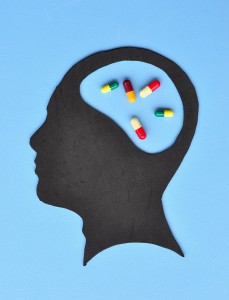Smart pills as cognitive enhancement? Let’s first monitor negative cognitive side-effects of common medications
 Memory Loss Could Be The Fault Of Your Meds, Not Your Age (International Business Times):
Memory Loss Could Be The Fault Of Your Meds, Not Your Age (International Business Times):
“Memory loss isn’t always an inevitable sign of getting old – in some cases, common medications that seniors take to treat insomnia, anxiety, or even allergies could be to blame…Tannenbaum and her colleagues recently investigated what kinds of medication are most likely to affect both memory and concentration. In a meta-analysis of 162 experiments on various drugs, Tannenbaum concluded that the recurrent use of several kinds of medications can have impacts on cognitive function…Sixty-eight of the studies they examined focused on benzodiazepines, which are often used to treat insomnia and anxiety. Consistently, these medications led to impared memory and concentration, with stronger impacts at higher doses. Tannenbaum says her findings confirm recent recommendations from the American Geriatric Society that seniors avoid tricyclic antidepressants, certain antihistamines and all sleeping pills.”
“Patients need this information so that they are more comfortable talking to their doctors and pharmacists about safer pharmacological or non-pharmacological treatment options,” Tannenbaum said.
Study: A Systematic Review of Amnestic and Non-Amnestic Mild Cognitive Impairment Induced by Anticholinergic, Antihistamine, GABAergic and Opioid Drugs (Drugs & Aging). From the Abstract:
- Background: Mild cognitive deficits are experienced by 18% of community-dwelling older adults, many of whom do not progress to dementia. The effect of commonly used medication on subtle impairments in cognitive function may be under-recognized.
- Conclusion: Non-amnestic mild cognitive deficits are consistently induced by first-generation antihistamines and tricyclic antidepressants, while benzodiazepines provoke combined amnestic and non-amnestic impairments. Risk-benefit considerations should be discussed with patients in order to enable an informed choice about drug discontinuation or substitution to potentially reverse cognitive adverse effects.


